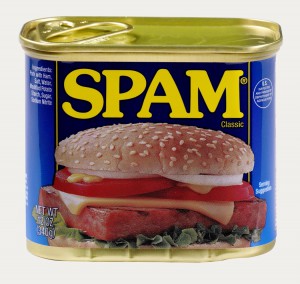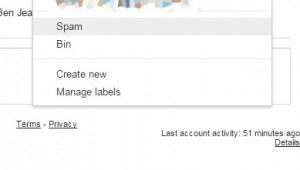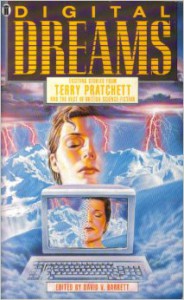More than Writers is the blog of the Association of Christian Writers, with daily posts on any aspect or aspects of writing and faith, in any degree of combination. I have the pleasantly mind stretching task of thinking of something for the tenth of each month, and so far have produced:
- Filling in the Holes: using less to say more.
- Let go!: trusting God to fill in the gaps.
- From marketing I came, and to marketing I have returned: on life’s strange cycles.
- Using Our Powers for Good: why don’t scammers use their creative powers to write a story?
- Casting Bread: A Practical Example: you don’t know if your new project will fizzle or be the next big thing, so just do it and see.
- By their fruits you will know them: the dark art of marketing.
- Five Into One: when embellished facts are just as true as the originals.
- Analogue Faith: yet another reason why AI will never take over, and why it doesn’t deserve to.
- It’s not just memoirs, you know: embrace the imposter syndrome and use it for good.
- Judas. Why?? By Ben Jeapes: even a villain character deserves respect.
- Times and Seasons: happy endings don’t last forever and it’s dishonest to suggest otherwise.
- But What Is Truth? By Ben Jeapes: when just the words aren’t true enough.
- Lessons in Life from Midge and Susie: always be the servant who does something with their talents.
- Twenty-five Glorious Years: hold onto your dreams, but only lightly because God might have a far better idea in mind.
- Gripping First Lines: every story needs a beginning but it doesn’t necessarily come at the start.
- Blessed Are You When the Reviewer is A Twit: on coping with bad reviews.
- God of the Gaps in my Schedule: if you can’t do things all at once, get them done bit by bit.
- What Are Words Worth?: on the surprising value of liturgy.
- Of Re-reading Books There Is No End: on returning to a previously-read book.
- The Final Front Ear: why I love science fiction.
- A Time for Gathering Words: for those weeks when you feel you’re not accomplishing anything.
- Accents clear and still: phonetic transcription of accents. Don’t.
- My enemy’s enemy – not always my friend: the ethics of ghostwriting, and why Matt Hancock’s choice betrayed them.
- … that you are mindful of him?: on AI and what it might mean for writers.
- Letting language die: how language can change and sometimes a formerly perfectly good should just be allowed to die without fuss.
- There’s no defence against thick readers: parables – always so clear-cut in their meaning …
- Seest thou a man that is hasty in his words?: how to do dialogue.
- When I consider thy heavens …: getting wonder into your world.
- The Cows of Cambridge: the creative application of the unexpected.
- The Ninth Commandment: the truth, and why it matters.
- Pulling A Picard: if you’re going to criticise, get it right.
- Family Matters: where and who are your characters’ families? Who do they love?
- Image Management: how not to over-explain, and trust your readers’ imaginations.
- Other People’s Shoes: putting yourself in them.
- Recording Inspiration: the life-changing advent of voice recognition!
- Innocent As Doves: publishing scams, and how to spot them.
- A Science Fiction Season: no, I haven’t given science fiction up – I’m just, um, not writing any. At the moment.
- The Mysterious Case Of The Missing Baby: unexpected story inspiration. Maybe.
- Communication – Who Needs It?: why manufacture conflict when it can just happen naturally?
- The Structured Acts of Apostles: the three-act structure.
- Lucre, Not Always Filthy: you are worthy of your hire. Yes, you are!
- Chapters Of Life: trust the author to deliver the goods, no matter how harsh the journey.
- How Big Is Your God?: if you’re going to challenge orthodoxy, improve on it.
- Twists In The Tale: spitting on a crucifix: not always bad, apparently.
- To The Letter!: applying a Line of Duty-style interrogation to the sense of your plot.
- Behind the Lines: balancing the elements and keeping them bubbling equally.
- Charles Dickens Never Wrote A Single Novel: laying the groundwork.
- Ready, Aim …: on not getting distracted from your target.
- Live With It: on not getting a TV series.
- One On A Scooter: Christmas songs: the good and the really, really bad.
- Bring Me My Coloured Coat: fiction that reflects reality but still has a resolution.
- Someone Might Steal My Idea!: and why would they want to do that, if you actually think about it?
- A Taste Exact For Faultless Fact: authenticity, and how to fake it.
- When Readers Don’t Get It: rolling with the critical blows.
- Hitting the Wall: suggestions for those days when the words just don’t.
- Digital Daily Bread: the latest is not always the greatest.
- Splinter of Ice: how a writer can – nay, must – be dispassionate.
- What Can Possibly Go Wrong?: expecting the unexpected and making it work.
- Don’t Fear Flaws and Fallibility: your characters need to be imperfect.
- Is It About Space?: what is your story “about”?
- Right Place, Right Time: the vital role of serendipity.
- Not All the Words (Please): less is more.
- Say It Loud, Say It Clear: getting right what many Christian memoirs get wrong.
- Don’t Say What You Mean: say what you mean to say by saying the opposite.
- The Labourer is Worthy of Their Hire: If you think hiring a professional is expensive, try hiring an amateur …
- Would the Opposite be Surprising?: Does your hero have flaws? Are you taking steps to correct them? If so, stop it at once!
- Exegeting Reviews: how not to let them go to your head, or your heart.
- The Album Challenge: strangely, no religious ones.
- Triangulating on Jesus: how to have Jesus in your writing without having Jesus in your writing.
- It’s A Kind of Magic: magic – authorial and stage.
- Kicking Away the Blocks: making sure your writing really stands up.
- I Must Become Less …: on ghostwriting and what the future might hold.
- The Stalingrad Madonna: light and humanity in the most inhuman and darkest of situations.
- Suffering Sorted – Not: on suffering, and why “theodicy” and “idiocy” might look so similar.
- Born Again Again: theological gold in Doctor Who.
- Pondering These Things: letting memory and experience inform your imagination.
- Ecumenical Canned Cheese: memories of the greatest house group ever.
- The Rubber Sheet Theory of Prayer: setting the world straight on how prayer works.
- Ultrasound Church: the church of Acts 2 – exemplary? No, not really.
- Heroic Factasy: when history is better than fiction.
- Unless the Lord Sells the House …: faith, fiction and flat sales.
- Misdirection: when not to be wholly straightforward.
- Slapped Around the Head: … by the Holy Spirit, no less.
- Magi and Mountains: “many paths to the top of the mountain” – so wrong, yet to almost right.
- Cool Yule Compromise: don’t hide your light under a bushel, but maybe turn it down a bit?
- The Baby in the Bark Lodge: the Christmas message for people who have never seen a desert, have no idea what a shepherd or a stable is, have never heard of the Emperor Augustus …
- The Swings and Roundabouts of Grace: God’s grace as shown in Abingdon’s Michaelmas Fair.
- Truth and Beauty: drawing the line between telling a good story and fibbing.
- Scribble, Scribble: testimony upon the second anniversary of going full time.
- Under the Law: why we should make life harder for our characters.
- Silencing the Echo Chamber: on embracing dissenting opinion.
- Senses of Purpose: the places we have in the world.
- Explaining the Hope: on not just taking stuff for granted.
- Answers in Time and Space: how I learnt to respect a Creationist.
- Feet of Clay: the fallibility of our heroes.
- Seeing the Big Picture: on the effect of context.
- The Other side of Advent: layering your stories.
- Coming Second: sidekicks and supporting roles.
- Mary Sue: making your characters fallible.
- Want to See a Trick?: on misdirection.
- Cracking Spines for Cracking Reads: why books never grow old.
- Poetry Emotion: the rhythm of language.
- Location, Location, Location: when the setting becomes a character.
- Fools for Christ? Or Just Idiots?: on not appearing stupid.
- Ghosts in the Machine: on ghost writing.
- How It’s About It: telling old stories in new ways.
- A Review of Reviewing: responding to bad (and good) reviews.
- Chewie, We’re Home: using imagery.
- Prologues, In General: use sparingly, if at all.
- To Boldly Sow: getting the message across without bring preachy.
- Logical, Captain: more on plotting.
- Plotting In A Fallen World: plotting.
- Doris Lessing & Miss Lydgate: avoiding the snare of perfectionism and just finishing the darn thing.
- Sweary Sweary Bleep Bleep: on Language, as my maiden aunt might say if I had one.



